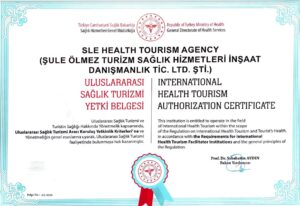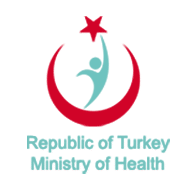If you’re considering a turkey hair transplant, you’re probably well aware of the incredible benefits of this procedure. Not only can it help you achieve a fuller and more youthful head of hair, but it can also give you a major confidence boost. However, one thing that many people don’t consider is the recovery time. After all, nobody wants to spend weeks or even months feeling uncomfortable or restricted. The good news is that there are plenty of ways to speed up your turkey hair transplant recovery time and get back to your normal routine as quickly as possible. In this article, we’ll share some tips and tricks to help you recover faster, from taking care of your scalp to making some simple lifestyle changes. So, whether you’re planning a turkey hair transplant in the near future or you’ve already had the procedure, read on to learn how you can speed up your recovery and get back to feeling like yourself again.
The importance of recovery time in a hair transplant
When it comes to any surgical procedure, recovery time is an essential part of the process. It’s during this time that your body heals and adjusts to the changes made during the surgery. Hair transplant surgery is no different. Turkey Hair Transplant Recovery time is crucial to ensure that your scalp and hair follicles are given the chance to heal and adapt to their new environment.
Recovery time can vary from person to person and will depend on factors such as the size of the transplant, the type of procedure, and your own individual healing process. However, on average, most people can expect to take around 7-10 days off work to recover from a hair transplant. It’s important to remember that this time off work is necessary to ensure that you give your body the rest and care it needs to heal properly. Rushing back to your normal routine too soon can put unnecessary strain on your scalp and hair follicles, potentially leading to complications and a longer recovery time.
Factors that affect hair transplant recovery time
As mentioned, recovery time can vary from person to person and will depend on a number of factors. Some of the key factors that can affect hair transplant recovery time include:
Type of procedure
The type of hair transplant procedure you choose significantly affects your recovery time. There are three main types of hair transplant procedures: Direct Hair Implantation (DHI), Follicular Unit Extraction (FUE), and Sapphire FUE. The traditional FUE method involves removing individual hair follicles from the donor area and transplanting them into the recipient area, often leading to a shorter recovery time due to less scalp trauma. DHI is a precise method using a patented tool for hair extraction and placement, providing minimal discomfort and a speedy recovery. The Sapphire FUE method utilizes a sapphire blade instead of a steel one, resulting in even less tissue trauma and an even quicker recovery time compared to traditional FUE. Each method has unique advantages, and the most suitable will depend on your specific needs and circumstances.
Size of the transplant
The size of the hair transplant will also impact your recovery time. The larger the transplant, the longer it will take for your scalp to heal and for the new hair follicles to settle into their new environment.
Age
Age can also impact hair transplant recovery time. The younger you are, the faster your body tends to heal. Older patients may take longer to recover from a hair transplant.
Health
Your overall health and wellbeing can also impact your recovery time. If you have any underlying health conditions or take certain medications, this may affect your body’s ability to heal.
Tips for speeding up hair transplant recovery time
While recovery time is essential, there are things you can do to help speed up the process. Here are some tips to help you recover faster from a turkey hair transplant:Take care of your scalp
One of the most important things you can do to speed up your recovery time is to take proper care of your scalp. Your scalp will be sensitive and tender after the transplant, so it’s important to avoid any activities or products that could cause further irritation or damage. Avoid touching or scratching your scalp, and wear loose-fitting clothing to avoid rubbing against the newly transplanted hair follicles.
You should also avoid washing your hair for the first few days after the transplant, as this could disturb the newly transplanted follicles. Once you are able to wash your hair, be gentle and avoid using hot water or any harsh shampoos or conditioners. Stick to a mild, fragrance-free shampoo and conditioner, and avoid any products that contain alcohol or other harsh chemicals.
Get plenty of rest
Another important aspect of recovery is getting plenty of rest. Your body needs time to heal, and getting enough sleep and rest will help your body do just that. Try to avoid any strenuous activities or exercise for the first week after your transplant, and avoid bending over or lifting anything heavy.
You should also avoid any activities that could cause you to sweat excessively, as this can increase the risk of infection. Instead, take it easy and give your body the rest it needs to heal.
Stay hydrated
Drinking plenty of water is important for overall health and wellbeing, but it’s especially important during the recovery process. Staying hydrated can help to flush out any toxins or waste products from your body, which can speed up the healing process. Aim to drink at least 8 glasses of water per day, and avoid any sugary or caffeinated drinks that could dehydrate you.
Eat a healthy, balanced diet
Your diet can also play a role in your recovery time. Eating a healthy, balanced diet that is rich in vitamins and minerals can help to support your body’s healing process. Focus on eating plenty of fruits and vegetables, lean protein, and whole grains. Avoid any processed or junk foods that could slow down your recovery.
Take your medications as directed
If your doctor has prescribed any medications to help with your recovery, be sure to take them exactly as directed. This may include pain medication, antibiotics, or anti-inflammatory drugs. These medications can help to manage any pain or discomfort you may experience, and reduce the risk of infection.
How to care for your hair post-transplant
Once your scalp has fully healed, it’s important to take proper care of your new hair to ensure that it stays healthy and strong. Here are some tips for caring for your hair post-transplant:
Be gentle
Your new hair follicles will be delicate, so it’s important to be gentle when washing and styling your hair. Avoid using any harsh chemicals or heat styling tools, as these can damage your hair and scalp. Instead, opt for gentle, natural hair care products, and let your hair air dry whenever possible.
Protect your scalp from the sun
After your transplant, your scalp will be more sensitive to the sun’s rays. To avoid sunburn and further damage, wear a hat or use a sunscreen specifically designed for the scalp.
Avoid smoking and alcohol
Smoking and alcohol can both have a negative impact on your hair and overall health. After your transplant, it’s important to avoid these habits to ensure that your hair stays healthy and strong.
The role of diet and exercise in hair transplant recovery
As mentioned earlier, diet and exercise can play a role in hair transplant recovery time. Eating a healthy, balanced diet can help to support your body’s healing process, while exercise can help to improve circulation and promote overall health. Here are some tips for incorporating diet and exercise into your hair transplant recovery:
Eat a balanced diet
As mentioned earlier, eating a healthy, balanced diet is important for your overall health and wellbeing. Focus on eating plenty of fruits and vegetables, lean protein, and whole grains. Avoid any processed or junk foods that could slow down your recovery.
Incorporate gentle exercise
While you should avoid any strenuous exercise for the first few weeks after your transplant, gentle exercise can help to improve circulation and promote healing. Try going for a short walk or doing some gentle yoga to help get your body moving.
Avoid extreme diets or fasting
While it may be tempting to try extreme diets or fasting to lose weight after your transplant, this can actually have a negative impact on your recovery. These diets can be stressful on your body and slow down the healing process.
Avoiding common mistakes during hair transplant recovery
While there are plenty of things you can do to speed up your recovery time, there are also some common mistakes to avoid. Here are some things to keep in mind during your hair transplant recovery:
Avoid scratching or rubbing your scalp
Your scalp will be sensitive and tender after your transplant, so it’s important to avoid scratching or rubbing it. This can damage the newly transplanted hair follicles and slow down your recovery.
Don’t pick at scabs
After your transplant, you may notice scabs forming on your scalp. While it may be tempting to pick at these scabs, it’s important to avoid doing so. Picking at scabs can lead to infection or damage to the newly transplanted hair follicles.
Don’t smoke or drink alcohol
As mentioned earlier, smoking and alcohol can both have a negative impact on your hair and overall health. It’s important to avoid these habits during your recovery to ensure that your hair stays healthy and strong.
Recommended products for turkey hair transplant recovery
There are a number of products that can help to support your hair transplant recovery. Here are some of our top picks:
Shampoo and conditioner
A mild, fragrance-free shampoo and conditioner are essential for hair transplant recovery. We recommend the Nioxin System 1 Cleanser and Scalp Therapy Conditioner, which are gentle and effective for post-transplant care.
Supplements
Supplements can help to support your body’s healing process after a hair transplant. We recommend biotin, which can help to promote healthy hair growth, and omega-3 fatty acids, which can help to reduce inflammation and support overall health.
Sunscreen
Protecting your scalp from the sun is essential after a hair transplant. We recommend the EltaMD UV Clear Broad-Spectrum SPF 46 sunscreen, which is specifically designed for the face and scalp.
What to expect during the first few months post-transplant
During the first few months after your hair transplant, you will likely experience some shedding and thinning of your new hair. This is a normal part of the process, and is usually temporary.
You may also experience some itching or discomfort as your scalp heals. This can be managed with over-the-counter pain medication or by applying cold compresses to the affected areas.
Conclusion: Achieving optimal results with a successful recovery
A successful Turkey hair transplant recovery is essential to achieving optimal results. By following the tips and advice outlined in this article, you can help to speed up your recovery time and get back to your normal routine as soon as possible. Remember to take care of your scalp, get plenty of rest, and eat a healthy, balanced diet. With time and patience, you can achieve the full, youthful head of hair you’ve always wanted.





